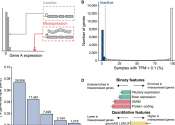Mutating virus fate reveals key pandemic prep insights
The story of the rise and fall of western equine encephalitis as a lethal disease offers essential lessons about how a pathogen can gain or lose its ability to jump from animals to humans.
Jul 25, 2024
0
16









